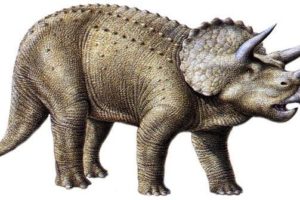Open Access
Erosion of traditional ‘taboos’ threatens Madagascar’s lemurs
Madagascar is world famous for its unique animals, many of which are protected by law, but recent research has demonstrated that illegal hunting of these protected species may be widespread and pose an urgent threat the country’s globally important bio…
How doctors make diagnoses
Doctors use similar brain mechanisms to make diagnoses and to name objects, according to a study published in the Dec. 14 issue of the online journal PLoS ONE and led by Marcio Melo of the University of Sao Paulo in Brazil.
Doctors often make diagnos…
Controversy over Triceratops identity continues
Despite their extinction millions of years ago, Triceratops continue to incite controversy. In the latest chapter, researchers present further evidence that three genera thought at one time or another to be distinct — Triceratops, Torosaurus, and Ne…
New communication code discovered in disease-causing bacteria
Single-celled bacteria communicate with each other using coded messages to coordinate attacks on their targets. Until now, the diversity of codes employed by these invading bacteria was thought to be extremely limited. However, a new report published D…
Time estimation ability predicts mathematical intelligence
Being good at estimating time can be a useful skill on its own, but it may also indicate higher mathematical intelligence as well, according to a new study published in the Dec. 7 issue of the online journal PLoS ONE.
A test of 202 students, evenly di…
Lightweight GPS tags help researchers track animals of all sizes
GPS tracking has shown its utility for wildlife studies, and now, development of light-weight GPS tags will allow researchers access to information about a broader range of small- to medium-sized animals than was previously available, according to a st…





